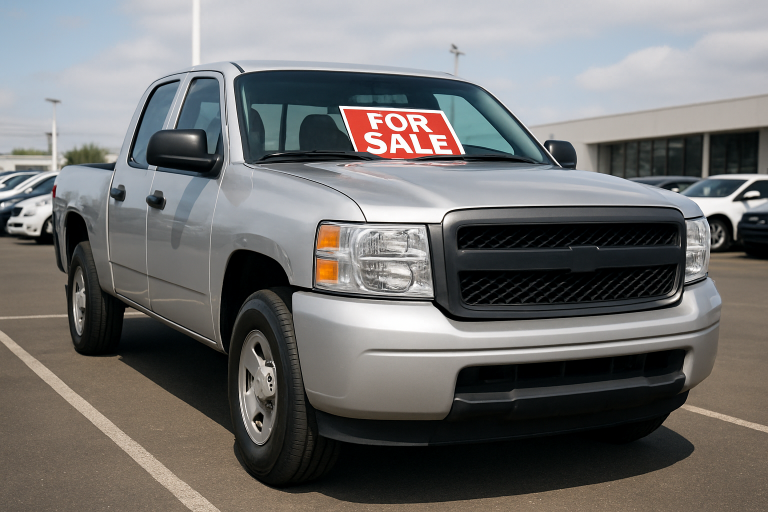Tips for Buying Used Trucks

Navigating buying a pre-owned truck means being vigilant about potential pitfalls and knowing which factors matter most. While the price tag often looks appealing compared to new trucks, your goal should balance value, performance, and longevity. You can avoid costly mistakes and drive away confidently with the correct information.
If you’re in the market for a used truck, making a smart purchase requires more than just scanning online listings. Whether upgrading your work vehicle or needing a reliable hauler for personal use, a little preparation goes a long way. For buyers searching for used pickups Austin, various reliable options are available. Understanding how to evaluate every aspect of a used truck will help ensure your investment lasts.
Table of Contents
Set a Realistic Budget
The first step in buying a used truck is determining a practical budget. While stretching your finances for specific models or features is tempting, remember to consider additional obligations. Consider taxes, title, registration fees, insurance premiums, and the possibility of service or repairs soon after your purchase. Setting aside a buffer for unexpected costs can keep your investment manageable and prevent unpleasant surprises.
Research Reliable Models
Reliability is especially crucial with used vehicles. Some trucks develop reputations for long-term durability and minimal maintenance costs. Models like the Toyota Tacoma, Chevrolet Silverado, and Ford F-150 consistently earn high marks for reliability, making them popular choices among buyers. To compare models, consult trusted resources or visit authoritative auto review sites for real-world owner insights and satisfaction scores.
Inspect the Vehicle Thoroughly
A hands-on inspection is essential for uncovering any red flags. Start by visually checking the body and undercarriage for rust, dents, or signs of accidents. Underneath, look for oil leaks or stains that may suggest issues with gaskets, the transmission, or the differential. Test all electrical features—headlights, windows, climate controls, and infotainment systems—since repairs in these areas can be costly. If you’re unfamiliar with what to look for, hiring a professional to perform a pre-purchase inspection is highly recommended.
Review Maintenance Records
Ask the seller for a complete set of maintenance records. Frequent oil changes, routine filter replacements, brake servicing, and consistent tire rotations suggest that the previous owner cared for the vehicle. Missing or sporadic records aren’t necessarily a deal-breaker, but they can raise questions about the truck’s upkeep and indicate that more intensive inspection may be needed.

Obtain a Vehicle History Report
Getting a vehicle history report is one of the most effective ways to avoid hidden problems with a used truck. These reports, from services like Carfax and AutoCheck, provide a detailed background, including reported accidents, flood damage, open recalls, odometer discrepancies, and previous ownership. A clean vehicle history is reassuring, but investigate any incidents thoroughly—it could influence your decision or negotiation strategy.
Consider Certified Pre-Owned Options
Certified Pre-Owned (CPO) programs give buyers added peace of mind. CPO trucks undergo rigorous manufacturer inspections, often with extended warranties, and may include perks like roadside assistance or free service intervals. At the same time, they tend to cost more than traditional used pickups, quality assurance and support can be well worth many buyers’ premiums.
Test Drive the Truck
Never skip the test drive. This is your chance to get an authentic sense of the truck’s comfort, handling, and condition. Start the engine cold to check for hard starting or smoke, then listen for unusual noises. Ensure smooth shifting and steady braking with no pulsing or grinding sensations. Test the vehicle in different environments—stop-and-go traffic, highway speeds, and rougher road surfaces—to reveal any drivability issues.
Negotiate the Price
After completing inspections and reviewing reports, prepare to negotiate a better deal on a used truck—research comparable listings and online price guides to determine the truck’s fair value. Use inspection findings and minor repairs to support your offer. Remember, pricing on used vehicles is flexible, and walking away can be a powerful negotiating tactic. With proper research and a vigilant buying process, you can choose the best option.






